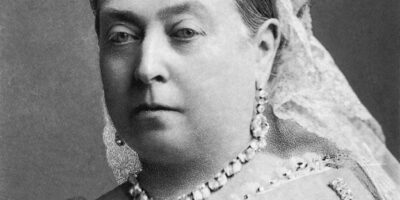Who Started World War 2: A Look at the Major Events that Triggered the War
Having witnessed the devastating loss and destruction from World War 1, nations, especially those caught up in the crossfire were resolute about averting such an occurrence again in the future. However, unknown to them, what they’d termed ‘a war to end all wars’ would inspire a string of events that would culminate into an even greater conflict barely two decades later. While historians have undisputedly attributed the invasion of Poland by Germany on September 1939 as the start of World War II, the storm had been brewing years before that, setting the stage for the war. Let’s have a look at the major events that triggered World War II.
Treaty of Versailles- Germany is humiliated

A newspaper article after the treaty of Versailles was signed. Photo by Kallen2021 . Wikimedia Commons.
The signing of the Treaty of Versailles on 28 June 1919 marked the official close of World War I, ending the conflict between Germany and the Allied Powers. The latter was an alliance made up of France, Russia, Japan, the United States, the United Kingdom, and Italy. The Allied Powers had won, and Germany was blamed for the war. The terms of the Treaty required that Germany disarms, give the Rhineland territories and, pay reparations for the war. These terms were imposed on Germany, within what appeared as calculated revenge and excessive punishment. With an already destabilized economy as an effect of World War I, Germany turned to print currency in large amounts, which in turn, as expected led to high inflation and devaluation. Of course, the Germans were enraged about the state of affairs and were willing to support anyone who would erase the unfair treatment and humiliation they had been subjected to.
Have a look at the Top 10 Facts about the Treaty of Versailles.
Rise of Adolf Hilter-Nazism spreads like wildfire

Adolf Hitler by Bundesarchiv. Wikimedia Commons.
Adolf Hitler had fought in the First World War and seeing his country forced to solely take the blame under such humiliating terms, his motivations for a revered German state only grew stronger. Capitalizing on the already existing resentment among the Germans, and the devastating economic conditions, his agenda quite easily flourished. He was known for his fiery and passionate speeches, which were often filled with inciting messages toward anyone he considered responsible for German’s sad state. The atmosphere in the nation made good ground for the rise of his National Socialist Party (Nazi), which promised a speedy change of the state of affairs.
He believed that German needed more living space (Lebensraum), and his mission became conquering all surrounding areas which had German populations. Hitler also blamed the Jewish population in the land, as he strongly believed that Germany would have won the war were it not for the persistent unrest at home. His antisemitic beliefs resonated with a majority of the citizens, and this would later result in one of the bloodiest genocides in history; The Holocaust. Hitler’s mission to achieve a unified Germany, and a pure race devoid of the contaminated’ Slovik Eastern populations, was underway.
Read more on 10 Facts about Adolf Hitler.
Hitler violates the Treaty of Versailles: Nobody pushes back
In utter defiance, Hitler started rebuilding Germany’s army, and re-arming, in violation of the terms of the Treaty. He founded the German air force, the Luftwaffe, and introduced conscription to increase his troops. He remilitarized the Rhineland, an area bordering France, which had been subjected to disarmament by the Versailles Treaty. Surprisingly, France did not hit back, and with nobody to actively stop Hitler, he only became more determined to pursue his mission of a stronger, unified Germany.
The Munich Agreement: Appeasement policy fails

Munich Agreement. From left: Chamberlain, Daladier, Hitler, Mussolini, and Italian Foreign Minister Count Galeazzo Ciano . Photo by Bundesarchiv. Wikimedia Commons.
Contemplation of another major war was the last thing anybody wanted, and an appeasement policy seemed to be the better option. Hitler continued to make demands and utilized this state of affairs to push as far as he could. The Munich Agreement authorized German annexation of Czechoslovakia’s borderland areas, which Britain, France, and Italy signed in the hope that it would be Hitler’s final demand. It was concluded on 30 September 1938, with Hitler promising that this was his last territorial claim.
Well, he broke his promise soon enough, by invading the remaining land, making it a Protectorate of Bohemia and Monrovia. Czechoslovakia was no more. Yet again, Hitler’s aggression was only merely condemned, but no country was willing to go to war. Winston Churchill firmly believed that entertaining Hitler would eventually lead to war, not peace and he would be proven right when Germany finally invaded Poland, marking the beginning of World War II.
Top 10 Facts about Winston Churchill.
The League of Nations proves ineffective

1923 meeting of the League of Nations. Photo by Anonyymi uutiskuva. Wikimedia Commons.
The League of Nations had been founded during the Paris Peace Conference which ended the First World War, and its main mission was world peace through collective security. However, it lacked its armed force, and the only means by which collective security would be secured was by relying on the First World War Allies. In any case, economies had greatly suffered and the last thing countries wanted was to go to war amid such economic hardships. Thus, when territories invaded by Germany cried out for help, the League of Nations availed no military support.
Militarism in the East: Japan invades China
Japanese imperialism was taking root in the East, both politically and economically motivated. Japan invaded the Manchuria region of China in 1931, and this was just the beginning of an expansionist agenda in South East Asia. As conflict ensued, and embargoes were placed against Japan by the United States, tension grew, and Japan was adamant. The attack on Pearl Harbor in 1941 as a preventive action against interference by the U.S. on its expansionist agenda, only acted as a catalyst, finally drawing in American direct involvement in World War II. The U.S. declared war on December 8, 1941, a day after the attack. Three days later, Germany and Italy, which were Japan’s allies, declared war on the U.S.
Germany invades Poland

The Nazi-soviet Invasion of Poland, 1939 Russian cavalry and infantry entering the Polish city of Wilno (Vilnius) after joint German-Russian aggression against Poland. Photo by Press Agency Photographer. Wikimedia Commons.
Hitler carried on with his expansionist agenda without much retaliation or military action from the Allied powers. On September 1, 1939, he ordered his German troops to march into Poland. This was barely a week after signing a non-aggression pact with the Soviet Union; the Molotov-Ribbentrop Pact. The two had agreed to partition regions of Eastern Europe that were between them. The Soviet Union would join in on 17th September. France and Britain had signed defense treaties with Poland, thus when their demands for Hitler to withdraw got ignored, they declared war on Germany. World War II was well underway, and scores of lives would be lost in yet another devastating world conflict.
Read more on 10 Brutal Facts about World War II.
Planning a trip to Paris ? Get ready !
These are Amazon’s best-selling travel products that you may need for coming to Paris.
Bookstore
- The best travel book : Rick Steves – Paris 2023 – Learn more here
- Fodor’s Paris 2024 – Learn more here
Travel Gear
- Venture Pal Lightweight Backpack – Learn more here
- Samsonite Winfield 2 28″ Luggage – Learn more here
- Swig Savvy’s Stainless Steel Insulated Water Bottle – Learn more here
Check Amazon’s best-seller list for the most popular travel accessories. We sometimes read this list just to find out what new travel products people are buying.










